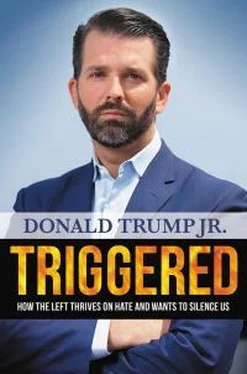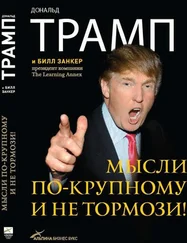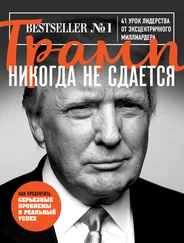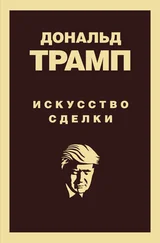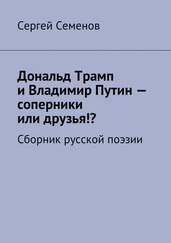I’VE LEARNED A THING OR TWO about politics over the past few years. For instance: never trust the polls; don’t believe what you read in the newspaper; and never, ever underestimate the people in Michigan, Pennsylvania, or Ohio (hear that, Hillary?). Maybe the most important thing I’ve learned, however, is that there’s no substitute for getting out on the road and shaking hands with real people, not just the paid seat-fillers and people who show up for the free coffee and donuts. You can learn more from one hour in a parking lot outside a campaign event or while filling up at a local gas station than you can in a hundred strategy meetings at campaign headquarters. From our first moment on the campaign, my brother Eric and I have always had a rule that we won’t leave a room until we’ve shaken every hand extended to us. The same is true of taking pictures, signing hats, and hearing stories. Our motto is that if there is anyone left in the room, we’re still in the room. My father got that from his very first seconds on the campaign stage. He used to poll people by listening to their applause, and he’d know what policies were working based on how loud they cheered. He didn’t need a team of data scientists to know the people were behind him.
Follow this principle and you might lose some sleep and miss a lot of meals, but you also might just help your father win the White House. So it’s kind of a good trade-off.
One morning in 2016, a few minutes before one of my many solo campaign events, I took a walk around the rope line outside a large venue in Wisconsin. I would like to tell you that I drew bigger crowds than Hillary Clinton in Wisconsin during that campaign, but I can’t. That’s because she didn’t draw a single person. She didn’t visit the state even once ! (I’m sure the Dems will fix that this time around—not because they want to but because they have to. Thanks to my father, they learned that they can’t take those votes for granted anymore.) My speech was only a few days before the election, so I’m sure I was running on pure adrenaline fueled by about 100 calories (mostly from Red Bull) and something like two hours of sleep. Looking back, those last weeks on the campaign run together like one very long day. Not that I’m complaining. As you might imagine, it was a pretty exciting time, and I loved the action and the fight. One thing about being on the Trump train is that it’s never boring.
Beyond the rope, toward the front of the line waiting to get into the event, there was a rowdy group of guys in orange vests and soiled carpenter jeans. A few wore yellow hard hats, while the rest sported the classic red MAGA caps. It’s the kind of gathering you don’t come across too often at Manhattan dinner parties. It’s also the kind of group, I came to find, that will tell you exactly how they feel and what’s on their minds. So I went over to hang out for a few minutes. They couldn’t have been nicer. For a while, it was the usual stuff: “We can’t wait for you to make America great again!” “Your dad’s the best!” “We hate Hillary!” and so on, all smiles. They told me that they were all union carpenters and they all loved my father’s message. I posed for a few pictures and was about to take off for the backstage area when I noticed a guy off to the side.
He was dressed in pretty much the same manner as the other carpenters, but he wore no Trump swag and he didn’t seem all that happy to be there. Honestly, he looked as though his pals had stuffed him into the trunk against his will and forced him to attend. I went over to him and shook his hand. As I did, he shook his head and laughed. “Sorry, man,” he said. “It’s just that if my grandfather knew I was about to vote for a Republican, he would roll over in his grave.”
I could appreciate his concern. Both my grandfathers are heroes of mine. I’ve lived my whole life with their examples in mind, and my views on politics are pretty similar to what theirs were. I’d also heard a similar line from other union workers.
“Just curious,” I said. “Why is that?”
In response, my new friend—let’s call him “Rusty”—went on to tell me that he and his buddies were all from the same union local. They’d traveled more than a hundred miles to come hear my dad’s speech. Rusty in particular had come from a long line of union people, mostly carpenters and electricians from Wisconsin, who’d all followed the same path in life. They’d grown up in small towns around the smell of cut lumber, gotten jobs on the same crews as their fathers, then gotten their union cards on their eighteenth birthdays—right around the time they cast their first votes for Democrats.
For Rusty’s grandfather, that Democrat was probably Franklin D. Roosevelt, the man who practically invented the labor union and brought the whole American working class out of the Great Depression. At least it can be argued that his vote made some sense at the time. Then for his father, it would have been John F. Kennedy (JFK would be considered alt-right today) or LBJ. In keeping with family tradition, Rusty joined the local and cast his first vote for Barack H. Obama, a man who took more money from the paychecks of blue-collar workers than any president since the Great Depression. Clearly, Rusty’s presidential votes to that point were votes against his own self-interest. It wasn’t really his fault, though. From the days when he was playing with his first Fisher-Price hammer-and-nails toy set, his father and grandfather had been telling him about how Democrats were the only true party for the working class. According to that line of reasoning, Democrats cared about wages and benefits, while Republicans cared only about lining the pockets of the corporate overlords and company bosses. And why wouldn’t he believe them? To that point, the guy’s life had been like one long Bob Dylan song (the early stuff). And it hadn’t been only his grandfather and father feeding him the line. Fat-cat Republicans taking advantage of poor workers played on a loop on television news and in Hollywood scripts. It appeared in liberal newspapers on a daily basis. I’ve always said that if you actually work for a living and don’t have time to scour the world for the few shreds of actual real news that remain, it can be very difficult to determine what’s true and what isn’t.
What is true is this: His grandfather and father hadn’t been lying to him. For much of the twentieth century, the Democrat Party really was the party of the labor unions and blue-collar workers. No doubt about it. Sure, at first, the party opposed civil rights legislation and had some pretty big problems letting black people actually join those unions, but it did a lot to lift the American working class out of poverty. It’s the reason we have a forty-hour workweek, a two-day weekend, and benefits programs for workers. If you were an electrician or a plumber in the 1930s—again, as long as you were white and male didn’t have any black friends—you’d have been forgiven for voting Democrat all the way. But somewhere in the late twentieth century, the liberals changed their tune on working-class voters. During the administration of Lyndon Johnson, when the Democrats started to realize that pretending to be for civil rights reform would keep them in office, they started to replace their support for workers with a support system for workers. Instead of pooling resources so they could cut taxes and grow US businesses, the federal government under Democrat control started to promote public spending and enormous welfare programs. Instead of enacting pro-business policies that would enable American workers’ wages to go up, they put those workers on welfare. Then they raised taxes to pay for bloated programs, such as food stamps and federally funded housing, that work only to keep poor people poor. Democrats wanted and still want to keep the masses dependent. Their party became the party of dependence, because without dependence, what else did they have to offer?
Читать дальше
